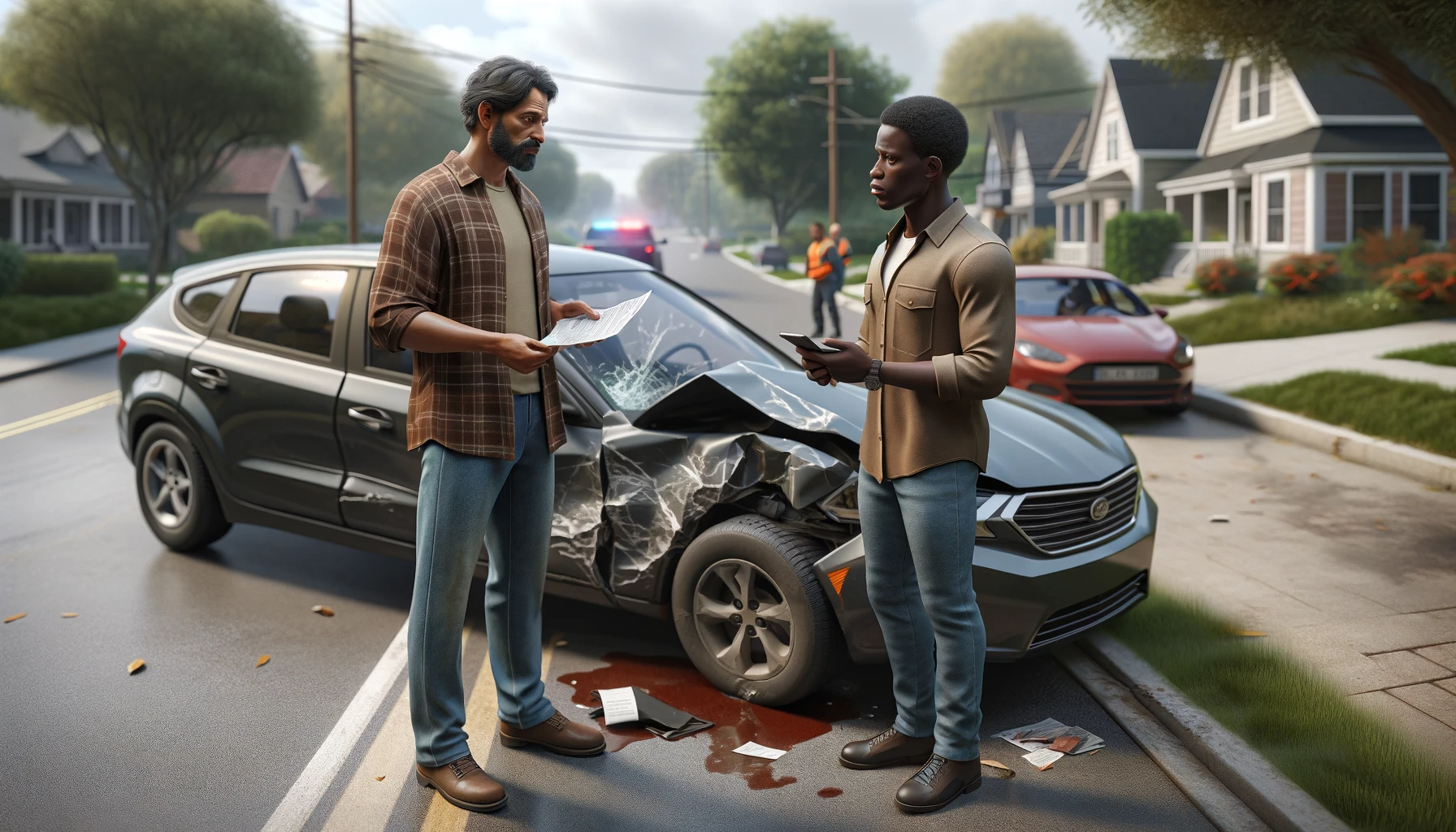Legal Resources in California for Auto Accident: Understanding the Statute
Auto accidents are an unfortunate reality of modern life, especially in a bustling state like California. With millions of drivers on the road, the chances of being involved in an accident are higher than most would like to admit. When accidents occur, knowing your legal rights and responsibilities is crucial. This article aims to guide you through the essential legal resources available in California and help you understand the statute of limitations that govern
auto accident claims.
What is the California Statute of Limitations for Auto Accidents?
The statute of limitations is a legal term that refers to the maximum time period you have to initiate legal proceedings from the date of an incident. In California, the statute of limitations for
auto accidents is particularly relevant because it dictates the timeframe within which you must file a claim.
For
personal injury claims resulting from an
auto accident, the statute of limitations in California is generally two years from the date of the accident. This means that if you are injured in an accident, you have two years to file a lawsuit against the responsible party. For property damage claims, the statute is three years.
The Importance of Knowing the Statute of Limitations
Understanding the statute of limitations is vital because it directly impacts your ability to seek compensation. If you fail to file your claim within the designated timeframe, you may lose the right to pursue legal action entirely. This could mean forgoing compensation for medical bills, vehicle repairs, lost wages, and more. The clock starts ticking the moment the accident occurs, so prompt action is essential.

Types of Auto Accident Claims Covered by the Statute
Different types of claims can arise from an
auto accident, and each is subject to the statute of limitations:
- Personal Injury Claims: These involve any injuries sustained by individuals in the accident. This could include physical injuries, emotional distress, and psychological trauma.
- Property Damage Claims: These are claims for damage to your vehicle or other property caused by the accident.
- Wrongful Death Claims: If the accident resulted in the death of a loved one, you might be eligible to file a wrongful death claim. The statute of limitations for wrongful death claims in California is also two years from the date of death.
How Long Do You Have to File an Auto Accident Claim in California?
The timeframe for filing an
auto accident claim in California varies depending on the nature of the claim:
- Personal Injury Claims: You have two years from the date of the accident to file.
- Property Damage Claims: You have three years from the date of the accident to file.
- Wrongful Death Claims: You have two years from the date of death to file.
Exceptions to the Statute of Limitations
There are certain circumstances where the statute of limitations may be extended, known as "tolling." For example:
- Minors: If the injured party is a minor, the statute of limitations does not begin until they turn 18 years old.
- Incapacitated Individuals: If the injured party is mentally incapacitated at the time of the accident, the statute may be tolled until they regain capacity.
It’s essential to consult with a legal professional to understand if any exceptions apply to your situation.
If you are involved in an
auto accident, taking the right steps immediately can significantly impact the outcome of your legal claim:
- Ensure Safety: Move to a safe location if possible and check for injuries.
- Call the Authorities: Report the accident to the police, and make sure a report is filed.
- Gather Evidence: Take photos of the scene, gather witness statements, and document any damages or injuries.
- Seek Medical Attention: Even if you feel fine, some injuries may not be immediately apparent. A medical evaluation is crucial.
- Contact Your Insurance Company: Report the accident to your insurance provider as soon as possible.
Consulting with a Legal Professional
After an
auto accident, consulting with an attorney is one of the most important steps you can take. An experienced attorney can help you navigate the complex legal landscape, ensuring your rights are protected and that you receive the compensation you deserve.
When choosing an attorney, consider their experience, reputation, and how comfortable you feel working with them. Many attorneys offer free initial consultations, which can be a great opportunity to find the right fit for your case.
Legal Resources Available in California
California offers a variety of legal resources to assist those involved in
auto accidents:
- State-Provided Resources: The California Courts website provides information on how to file a claim, court locations, and self-help resources.
- Non-Profit Organizations: Groups like the California Bar Association and Legal Aid Foundation offer free or low-cost legal assistance to those in need.
Online Legal Resources
The internet is a powerful tool for accessing legal information. Some useful online resources include:
- California Courts Website: Offers self-help guides, forms, and information on filing claims.
- Nolo: Provides legal articles, forms, and advice on auto accident claims.
- FindLaw: Another great resource for legal information and finding attorneys.
Understanding Insurance Requirements in California
In California, drivers are required to carry minimum liability insurance. This insurance is crucial because it covers damages or injuries you may cause in an accident. The minimum coverage requirements are:
- $15,000 for injury/death to one person
- $30,000 for injury/death to more than one person
- $5,000 for damage to property
Understanding your insurance coverage and how it interacts with legal claims is essential. If your insurance is insufficient, you may be personally liable for additional damages.

The Role of Mediation and Arbitration
In some cases, disputes following an
auto accident can be resolved through mediation or arbitration, rather than going to court:
- Mediation: A neutral third party helps both sides reach a mutually agreeable solution.
- Arbitration: An arbitrator hears both sides and makes a binding decision.
These methods can be faster and less expensive than traditional litigation.
Common Legal Pitfalls to Avoid After an Auto Accident
Navigating the legal aftermath of an
auto accident can be tricky, and many people make mistakes that could jeopardize their claims. Some common pitfalls include:
- Failing to Report the Accident: Not reporting the accident to the police or your insurance company can lead to complications down the line.
- Accepting a Quick Settlement: Insurance companies may offer a quick settlement that is far less than what you are entitled to. Always consult an attorney before accepting any offers.
- Delaying Medical Treatment: Not seeking immediate medical attention can not only harm your health but also weaken your claim.
Real-Life Case Studies
Looking at real-life examples can provide valuable insights:
- Successful Claims: There have been cases where timely action and thorough documentation led to successful settlements and verdicts.
- Unsuccessful Claims: On the other hand, claims that were delayed or poorly documented often resulted in the claimant receiving little to no compensation.
Conclusion
Understanding the statute of limitations and the legal resources available in California is crucial if you’re involved in an
auto accident. By taking prompt action, consulting with legal professionals, and avoiding common pitfalls, you can protect your rights and increase your chances of a favorable outcome. Remember, time is of the essence, so don’t delay in seeking the help you need.
Look for an attorney who has the right legal resources for your legal needs.
Contact us here on the
Warmuth Law website or through our hotline 888-517-9888.
Frequently Asked Questions (FAQ's)
1. What should I do immediately after an auto accident?
Immediately after an accident, ensure everyone's safety, call the authorities, document the scene, and seek medical attention. Report the accident to your insurance company promptly.
2. Can I file a claim after the statute of limitations has passed?
Generally, no. Once the statute of limitations has expired, you lose the right to file a claim. However, there are rare exceptions, such as when the injured party is a minor.
3. How do I know if I have a valid auto accident claim?
If you’ve been injured or suffered property damage due to someone else’s negligence, you likely have a valid claim. Consulting with an attorney can provide clarity on your specific case.
4. What are the costs associated with hiring an attorney?
Many
personal injury attorneys work on a contingency fee basis, meaning they only get paid if you win your case. The fee is typically a percentage of your settlement or judgment.
5. How can I find free legal assistance in California?
Organizations like the Legal Aid Foundation and the California Bar Association offer free or low-cost legal services. Additionally, many attorneys offer free initial consultations.













